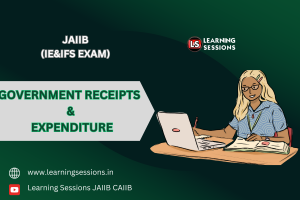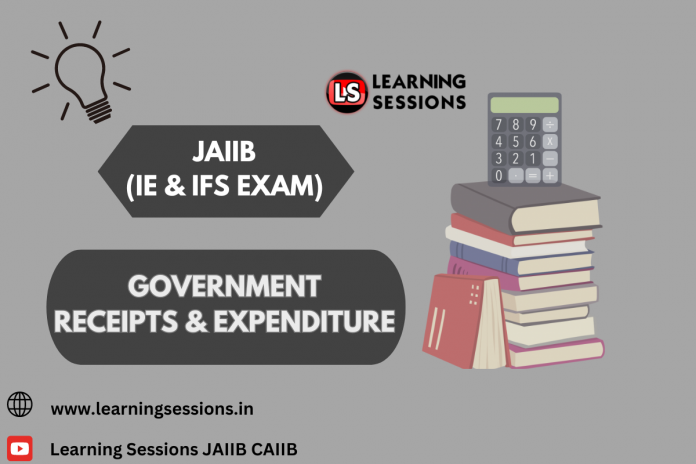The JAIIB examination plays a central role in catering banking professionals with an extensive understanding of the Indian Economy (IE) and the Indian Financial System (IFS). Among the key concepts is the analysis of Government Receipts and Expenditure—an essential part of fiscal policy and a major driver of macroeconomic stability. Learning Sessions’ this article focuses on how government receipts (revenues) and expenditures influence the Indian economy.

📚 JAIIB Study Resources 📚
👉 Check Here
👉 Check Here
👉 Check Here
👉 Get Tests Here
👉 Check Here
DOWNLOAD PDF GOVERNMENT RECEIPTS AND EXPENDITURE -CASE STUDY
Government receipts and expenditure are fundamental part of the Indian government’s fiscal policy. Receipts refer to the various means by which the government generates income, while expenditure refers to how the government spends that income to fulfill its policy objectives. For the extensive preparation of candidates, get details through our YouTube videos for JAIIB IE & IFS Module wise Syllabus with explanations and tips to help candidates in their preparation journey.
You may also like these JAIIB Case Studies:
JAIIB | IE & IFS | FOREIGN BANKS
JAIIB | IE & IFS | DOMESTIC COMMERCIAL BANK
The role of Government Receipts and Expenditure in the Indian Economy and Financial System are:
- Revenue Generation and Its Impact on the Economy
- Government Borrowing and Capital Receipts
- Public Expenditure and Its Impact on Economic Growth
- Managing Fiscal Deficit
- Government Expenditure and Financial System
Additionally, there are a couple of key Components of Government Receipts and Expenditure. Income from taxes forms the backbone of government receipts. Dividends from public sector enterprises, fees, and interest payments contribute to non-tax revenue. The government often borrows to bridge the gap between revenue and expenditure. These borrowings are raised through the issue of government securities and bonds. The sale of public sector assets or shares in public sector undertakings (PSUs) is another source of capital receipts. The government provides subsidies on essential goods such as food, fertilizers, and fuel to support vulnerable sections of the population. A significant portion of revenue expenditure is directed toward paying interest on past borrowings. Investment in infrastructure is vital for economic development. Expenditure on defense and education is critical for national security and human capital development. Learning Sessions provides additional information about JAIIB IE & IFS Planning Commission and Niti Aayog by giving examples of real life scenarios.
To sum up, Government receipts and expenditure play a crucial role in shaping the Indian economy and financial system. JAIIB candidates should focus on how government revenues and expenditures impact the financial system, including banking and capital markets.
Learn more about this case study through our YouTube channel and PDF..
Get access to our Telegram Channel for free Pdfs of JAIIB.





